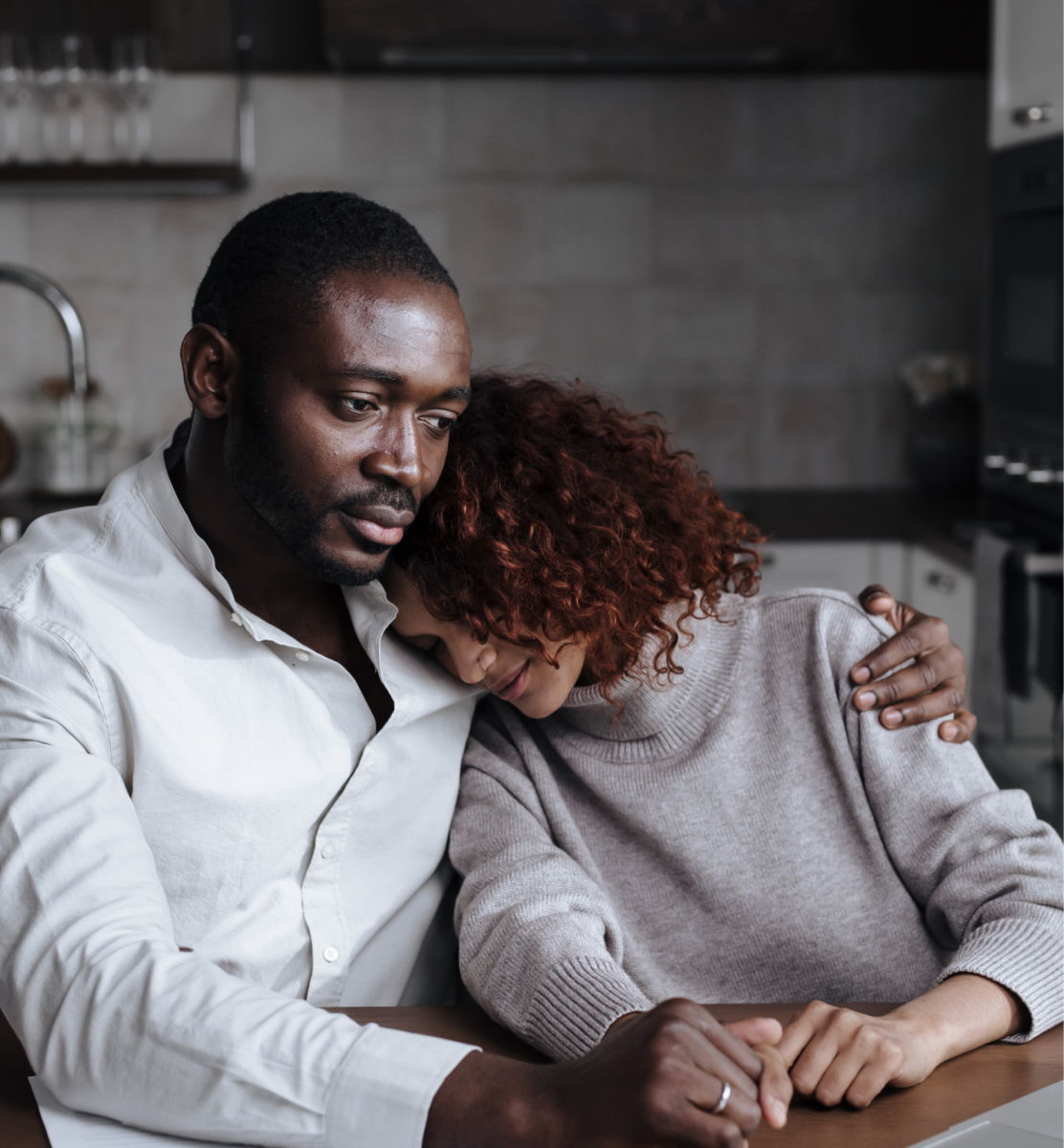
If someone you care about has had an abortion and is emotionally struggling afterwards, you may be wondering how to support them. You may be experiencing feelings of helplessness and even fear. You see that they are hurting and possibly spiraling into depression, but you have no idea what to do or say. It is difficult to see the people that we love hurting and there’s likely a part of you that wants to take the pain away. Unfortunately, there are no quick fixes for grief and loss, and no set time frame for a person to work through their difficult emotions.
What to expect post abortion?
The short answer to this question is that there is no expected “normal” or predicted reaction or response to an abortion. Every person’s abortion experience and how they feel afterwards will be unique to them. Some may experience feelings of relief and others may experience more complicated and difficult emotions, such as: anger (at themselves, their partner, society or others), sadness, numbness, regret, shame, confusion, depression and more.
How one felt about the pregnancy, their cultural or religious beliefs, whether or not they felt pressure to abort, previous mental health, how far along one was in the pregnancy or type of abortion one had can all contribute to one’s reaction and response. It is also possible for one to have felt confident and good about their decision to abort, and feelings of sadness and pain were completely unexpected. If your loved one is struggling emotionally after an abortion, it is likely that they are experiencing grief.
What is grief?
Grief is the normal and healthy response to a loss. Grief is most commonly associated with the death of someone close to you, but you can experience grief from other losses as well, including the loss of a job, a friendship, your health, a dream, a miscarriage as well as an abortion. A common view of grief is that it is like living two lives. One where you pretend everything is all right, and the other is where your heart silently screams in pain. Grief is not an emotion; it is the emotional process that one goes through when experiencing a loss. The emotion commonly linked to grief is sadness.
If you are supporting someone after an abortion, it is important to know that you may be one of the only people, or possibly the only person who knows about your loved one’s abortion. Due to the polarizing societal views that exist around abortion, many women who have had an abortion experience feelings of fear or shame when considering telling someone about their experience. This is because they do not know how the person they are sharing with will feel or respond once they tell them. They may fear: feeling judged, being shamed, or even creating a wedge between the relationship. These fears often lead to an increased sense of grief for those struggling emotionally after an abortion, because it isolates them; leaving them with very few people to confide in.
Practical ways to support someone after an abortion
We can often complicate support for someone who is struggling. What most people need is someone to be present in their lives. Here are some simple but meaningful ways to support someone after an abortion:
Listening
A person experiencing grief may need to talk about their pain, so being a listening ear is helpful. Let your loved one share what they want to share, without interrupting them. Maintaining eye contact, nodding your head or simply saying “mmm”, helps them to know that you are engaged and listening, without interrupting what they are sharing.
 Validating
Validating
Validating their emotions while not judging them is also an important and impactful way of offering support. Let your loved one know that there is no right or wrong way to feel. It can also be encouraging for them to know that when grieving, it is normal to feel one way one day and a different way the next day. The process of grief does not follow a straight line, but often feels confusing and messy. However, when someone feels unconditional love and acceptance, they are more likely to continue opening up and sharing freely with you.
Be physically present
Sometimes they are hurting too deeply and find talking difficult. Just being physically present with them helps them to know that they are not alone. This could look like taking a walk together or watching a movie.
Help them with their day-to-day needs
People who are grieving still need to eat. Try bringing a meal and sharing it with them. Offer to clean their house, buy groceries or do some other helpful chore. Check in with them regularly just to remind them that you care.
Don’t share their story
It is important to remember that this is their experience and their story. She has confided in you but she may not have told many other people. Do not assume that certain friends, family or even her partner know. It is not your story to tell. You can support her in telling others when she is ready to do so, but it is important that you do not share about her abortion experience with others unless she has given you permission to do so.
Share about helpful community supports
You can also consider sharing with your loved one about other community supports that help support people after an abortion, like the free After Abortion Support program that we offer at First Place Options. Helping them to expand their support network, when they feel ready, can be an important next step in working through and resolving their difficult emotions.
Remember: You can’t take away their pain but you can be present in it with them.
Taking Care of Yourself
Caring for a loved one that is hurting can be emotionally and physically exhausting. Remember that you can’t care for someone else if you aren’t “cared up” yourself.
Taking care of your physical needs are also important. Make sure you are still getting adequate sleep, eating well, and exercising.
Place importance on your own emotional health. Try and find balance for being there for your loved one and having time to decompress alone. Journaling can be a helpful outlet to process how this experience is affecting you and what kind of emotions you are experiencing. Your experience isn’t the same as the person who has experienced an abortion, but it has likely had an impact on you.
Thank you for being part of the healing process for your loved one. At a time where they likely feel alone and overwhelmed with many emotions, your caring presence has been a tangible reminder that they are not alone.
Click here to learn more about the After Abortion Support that we offer
FREQUENTLY ASKED QUESTIONS
If you are struggling after your abortion(s), we want you to know that you are not alone. Some women feel it is helpful to talk about their experience but find it difficult to find a safe place to do so.
For that reason, First Place Options offers an eight-week, one-on-one, After Abortion Support program. It does not matter how recent, or how long ago your abortion(s) occurred. We will help you process and work through your difficult thoughts and feelings by talking, asking questions, and giving you tools to use in your journey to move forward. Healing is possible, and you are worth it.
All support is offered free of charge, is confidential, and can be in-person or virtual.
Please contact us if you would like to book an appointment to speak with a counselor to discuss After Abortion Support. Contact us today.
At times we have done an intake session with a couple together. Our intake sessions allow clients to meet with a counsellor and find out more about the After Abortion Support that we offer. These appointments also allow the counsellor the opportunity to get to know a little bit about the client, so that we know how best to support them. After a joint intake session, we usually recommend that the couple continue their After Abortion Support on a one-on-one basis with different counsellors. We do this because partners tend to process their abortion experience at very different rates and have different needs. Continuing individually allows each partner the valuable time they need to work through their thoughts and feelings at their own pace. Couples can then come together on their own time to share with each other how they are doing and what they are working through.













